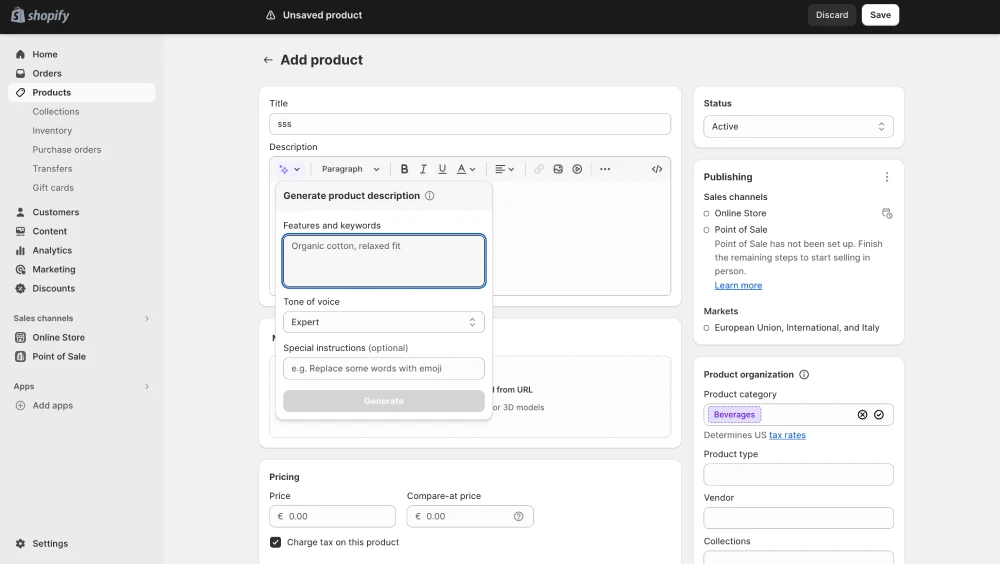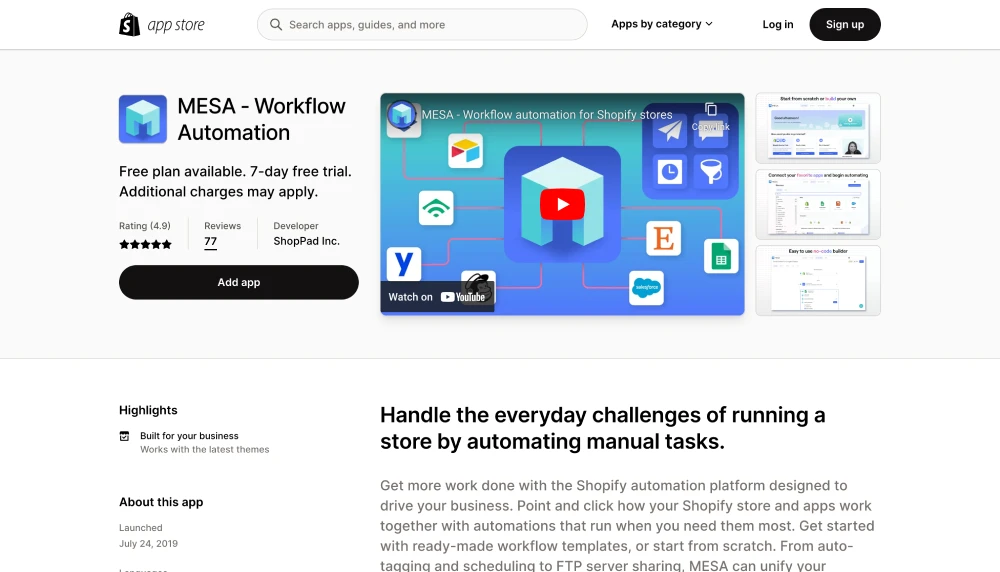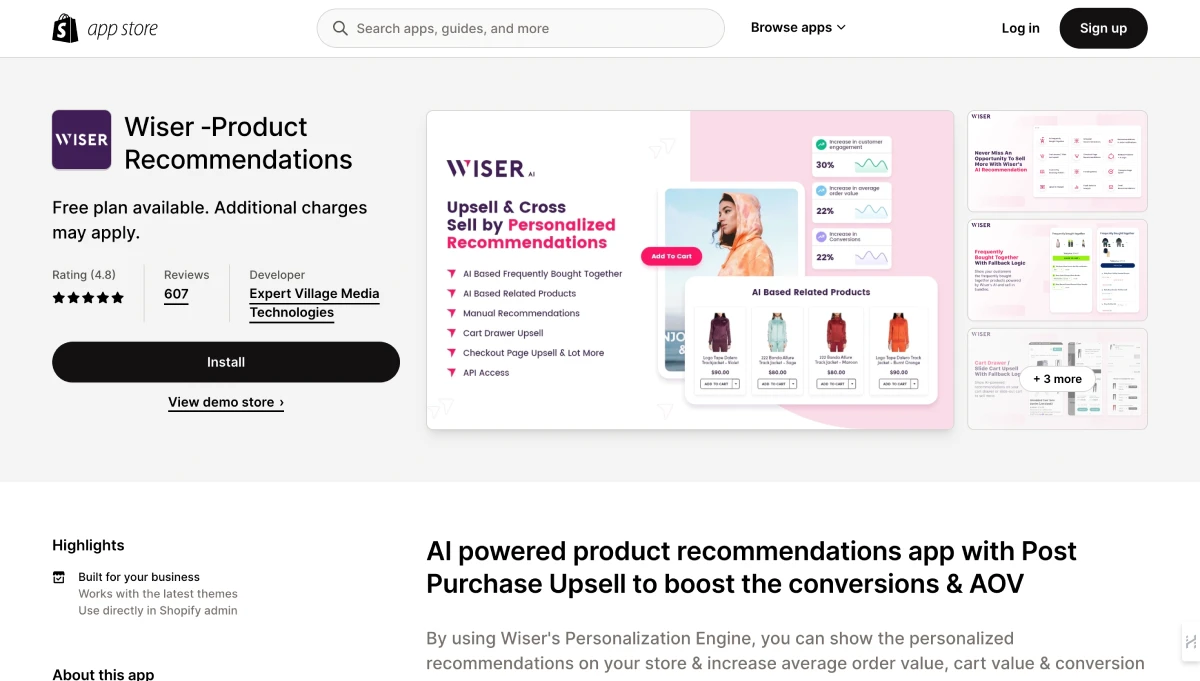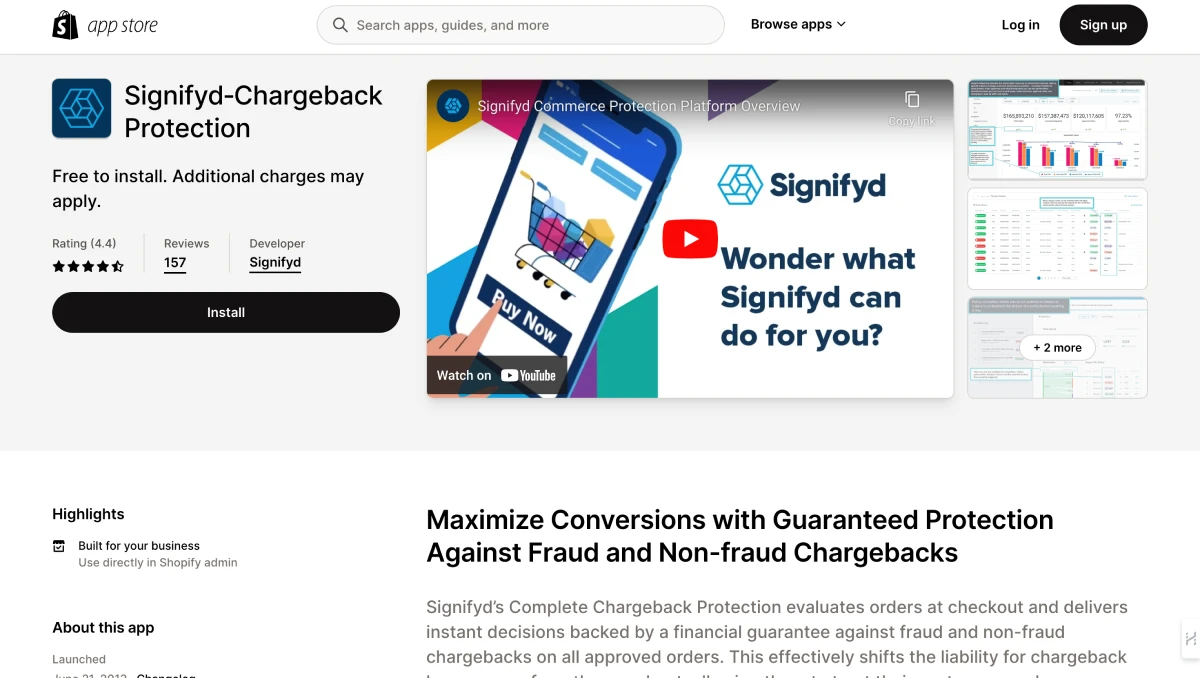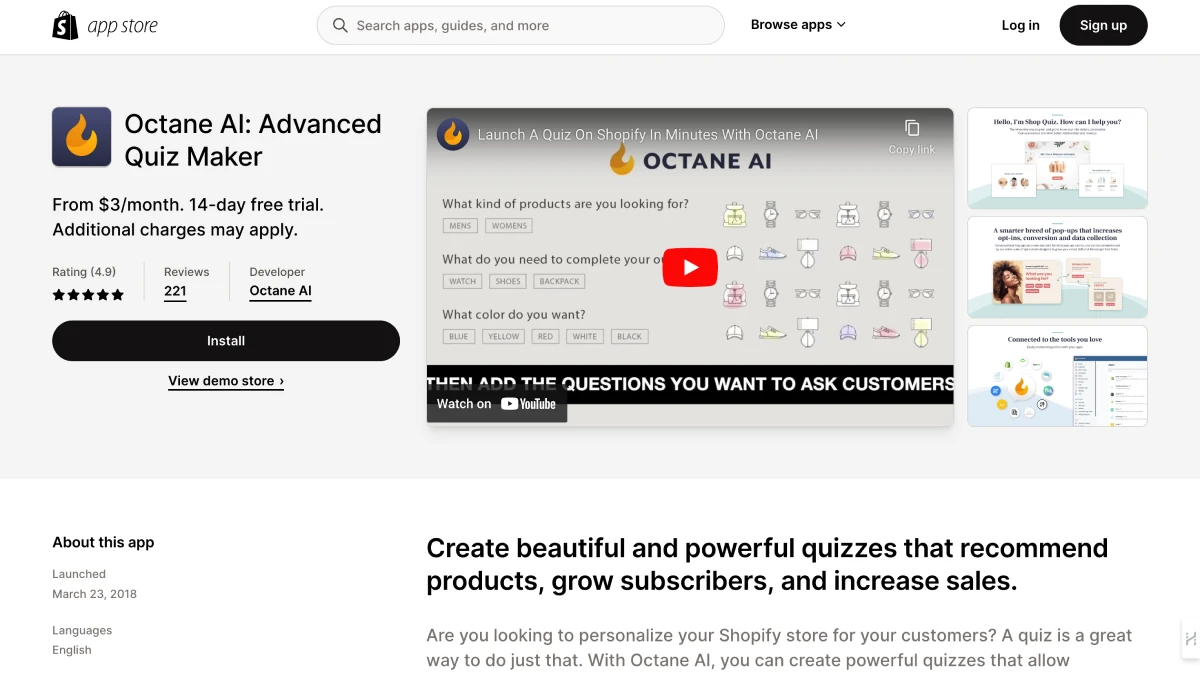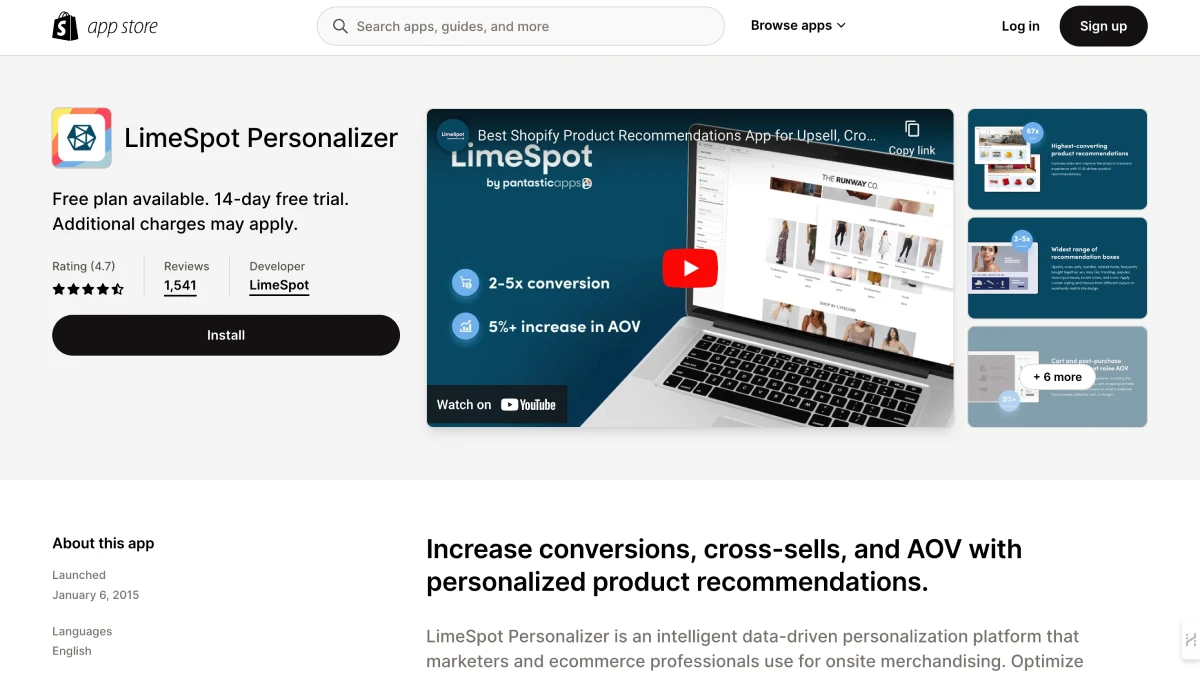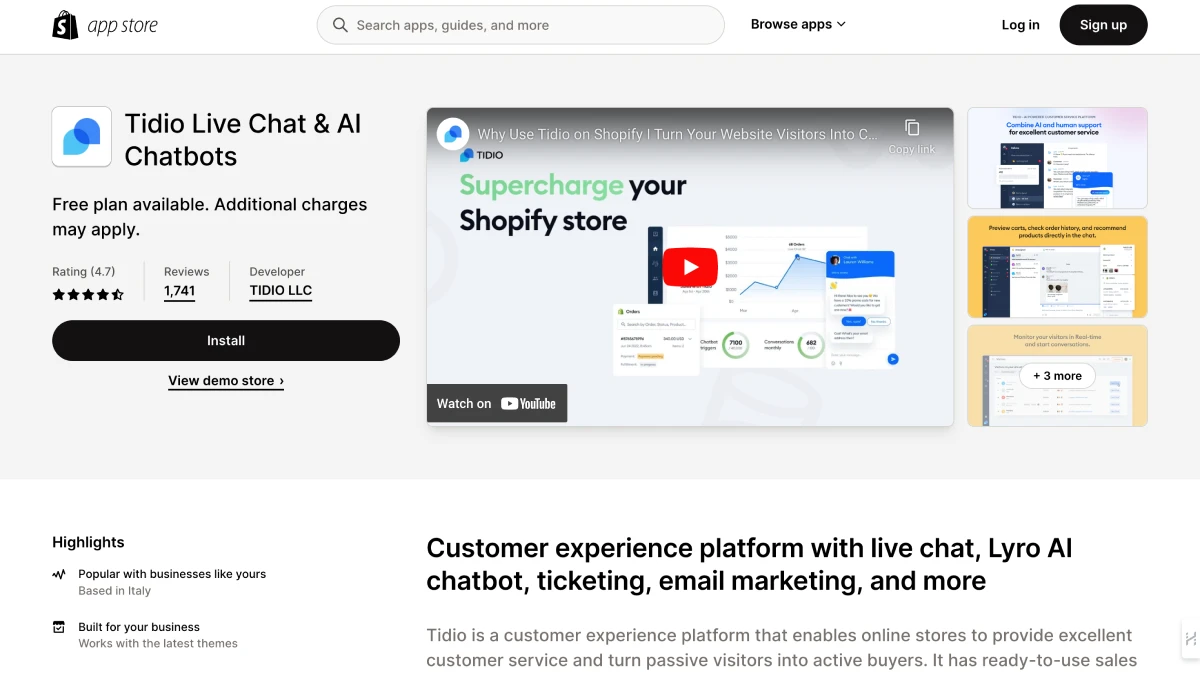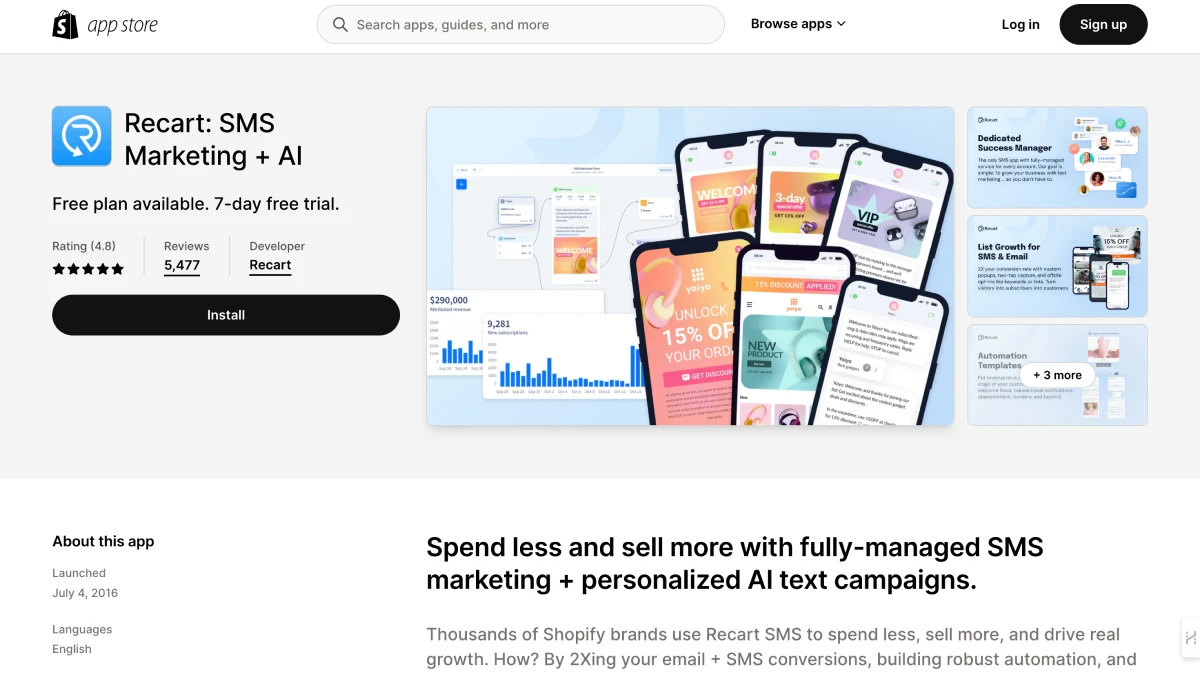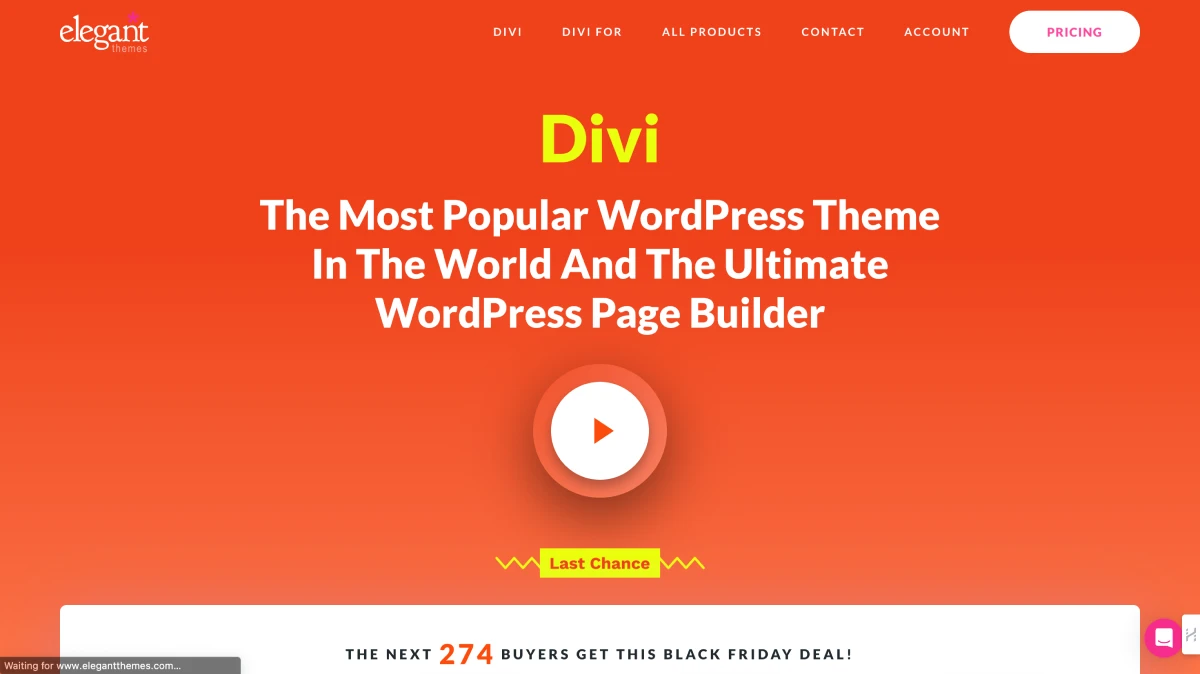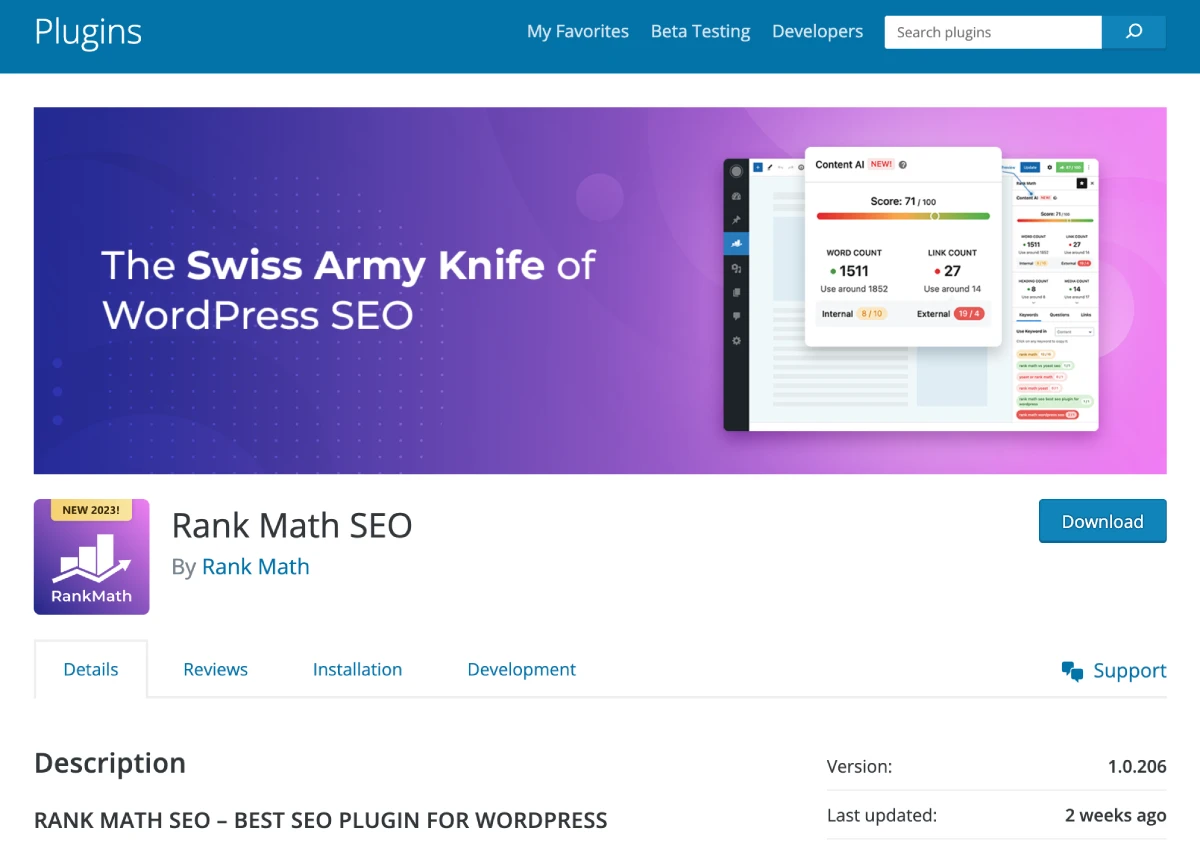Table of Contents
Introduction: The Rise of AI in E-commerce Platforms
Imagine the countless possibilities that artificial intelligence brings to the table. It’s like having a tireless assistant who’s there 24/7, dedicated to improving your overall shopping experience. In recent years, the e-commerce industry has embraced AI technologies to enhance customer interactions, optimise business operations, and gain a competitive edge. The integration of AI in platforms such as Shopify and WordPress has truly revolutionised the way companies do business online.
Artificial intelligence algorithms can swiftly analyze enormous amounts of data to provide insights and results that significantly benefit both consumers and businesses. For consumers, AI personalises their experience by offering tailored product recommendations based on their browsing history, purchase patterns, and even socio-demographic factors. This intelligent user-targeting capability not only enhances user engagement but also fosters customer loyalty.
For online businesses, AI integration enables them to optimise inventory management, forecast sales, mitigate fraud risks, and enhance customer service efficiency. In addition, AI technology’s ability to automate laborious tasks allows businesses to allocate resources to other strategic undertakings effectively. It’s like having a command centre that took your business to Fahrenheit 451, made some Bradbury-esque modifications, and brought it back operating at maximum efficiency.
Not only are the AI technologies powering user experiences and business operations, but they are also instrumental in optimising site performance and SEO. This integration is playing a crucial role in enhancing search engine visibility, thus driving more traffic and increasing conversion rates.
But how exactly is AI integrated into e-commerce platforms like Shopify and WordPress? What are the differences between their approaches? In the coming sections, we’ll dive into the fascinating world of AI’s integration in these two pivotal platforms. Grab a cup of coffee – or perhaps an Earl Grey with a slice of lemon for the traditionalists among us – and let’s proceed.
Shopify’s AI Integration: Revolutionizing User Experience
Shopify has introduced a new feature that automatically generates product descriptions. Additionally, when creating a website, you can now use this tool to generate headings and text. For more details, please check the Screenshots.
Shopify’s AI-powered apps
1) MESA
Pricing: Free option available. Paid plans begin at $20/month.
Make managing your Shopify store easier with MESA, a powerful tool that automates your tasks. Use our pre-made templates to reduce manual work, improve efficiency, and achieve more quickly. Everything from tagging products to sharing inventory updates is handled in one place, ensuring all key tasks are managed effortlessly.
MESA stands out as the top Shopify AI tool thanks to its seamless integration with OpenAI, ChatGPT, DALL-E, and MESA’s own AI. These integrations make it simple to incorporate AI into any process.
Pros:
- Ready-to-use workflow setup
- Live chat and email support
- User-friendly workflow builder
- Templates available for quick use
- Includes MESA’s AI app
Cons:
- Learning to create workflows from scratch can be challenging.
2)WISER
Pricing: Free plan available. Paid plans begin at $19/month.
Boost your sales and impress customers with Wiser’s easy-to-use personalization tool. It uses AI to suggest products that customers often buy together or might like, helping you sell more at checkout. This not only increases your sales per order but also makes shopping more enjoyable for customers. Plus, get valuable insights into how customers shop and see product suggestions change in real time based on their behavior.
Pros:
- User-friendly
- Helpful support team
- Customizable options
Cons:
- Costs include an additional 2% on sales made through Wiser.
3)SIGNIFYD
Pricing: Starts at $1,500/month.
Relax and let Signifyd handle chargebacks for you. Their system quickly checks for fraud using AI. It assesses orders when customers check out, insuring approved purchases against fraud and other chargebacks. This means you can grow your business boldly without worrying about losing money from disputes.
Pros:
- Easy to use
- Full protection against fraud
- Quick resolution of issues
Cons:
- May be costly for small businesses
4)OCTANE
Pricing: Starts at $50/month.
Octane helps you enhance your customers’ shopping experience with personalized product suggestions. Use Octane’s interactive quizzes on your Shopify store to guide customers to products they’ll love. This boosts your sales, increases order values, and strengthens customer relationships. Octane’s AI uses the answers from quizzes and surveys to make smart product recommendations.
Pros:
- Personalized for each customer
- Groups customers by preferences
- Simple to use
Cons:
- Creating quizzes may require some effort.
5)LIMESPOT
Pricing: Starts at $15/month.
Explore LimeSpot Personalizer, a tool that’s transforming online shopping. This AI-powered platform offers custom product suggestions, upsells, cross-sells, and bundle deals, helping to increase your sales and average order size. It’s quick to set up, so you can see improvements right away.
Pros:
- Great for upselling
- Lots of customization
- Quick support response
Cons:
- Extra fees depend on your store’s earnings.
6)TIDIO
Pricing: Free plan available. Paid plans from $19/month.
Tidio offers an easy-to-use platform for Shopify stores, turning casual shoppers into buyers. It includes AI chatbots for sales and support, answering common questions fast and boosting sales. Manage all customer messages in one place with Tidio’s efficient helpdesk. It’s specially made to work well with Shopify.
Pros:
- Simple to use
- Great support quality
- Easy to set up
Cons:
- Cost per user can be high.
7) RECART
Pricing: Free option available. Paid plans from $299/month.
Boost your Shopify store’s sales by up to 33% with Recart SMS marketing. Expect a high ROI of 36.8X on average. Enjoy full-service features including custom popups, automated messages for new visitors or abandoned carts, and targeted SMS campaigns. From the start of your free trial, you’ll have a dedicated Customer Success Manager for help and weekly updates to track your progress.
Note: Recart is often mentioned alongside AI chatbots, but it doesn’t use AI or natural language processing. It’s not technically an AI app for Shopify.
Pros:
- Easy to use
- High-quality support
- Simple setup
Cons:
- Doesn’t use AI technology
- Results with Facebook Messenger may vary.
WordPress’ AI Integration: Innovating User Interaction
The integration of Artificial Intelligence (AI) into WordPress has revolutionized the way we manage and optimize websites. AI-powered plugins are not just tools; they are game-changers, offering innovative solutions to automate tasks, boost user engagement, and create compelling content. Let’s explore some of the best AI plugins that are transforming the WordPress ecosystem.
WordPress AI-powered Plugins
1)Elementor AI
Elementor is a powerful WordPress website builder that has embraced AI technologies to enhance its capabilities. The integration of AI in Elementor offers several benefits. It can assist in designing layouts that are aesthetically pleasing and functionally effective by suggesting design elements based on current web trends.
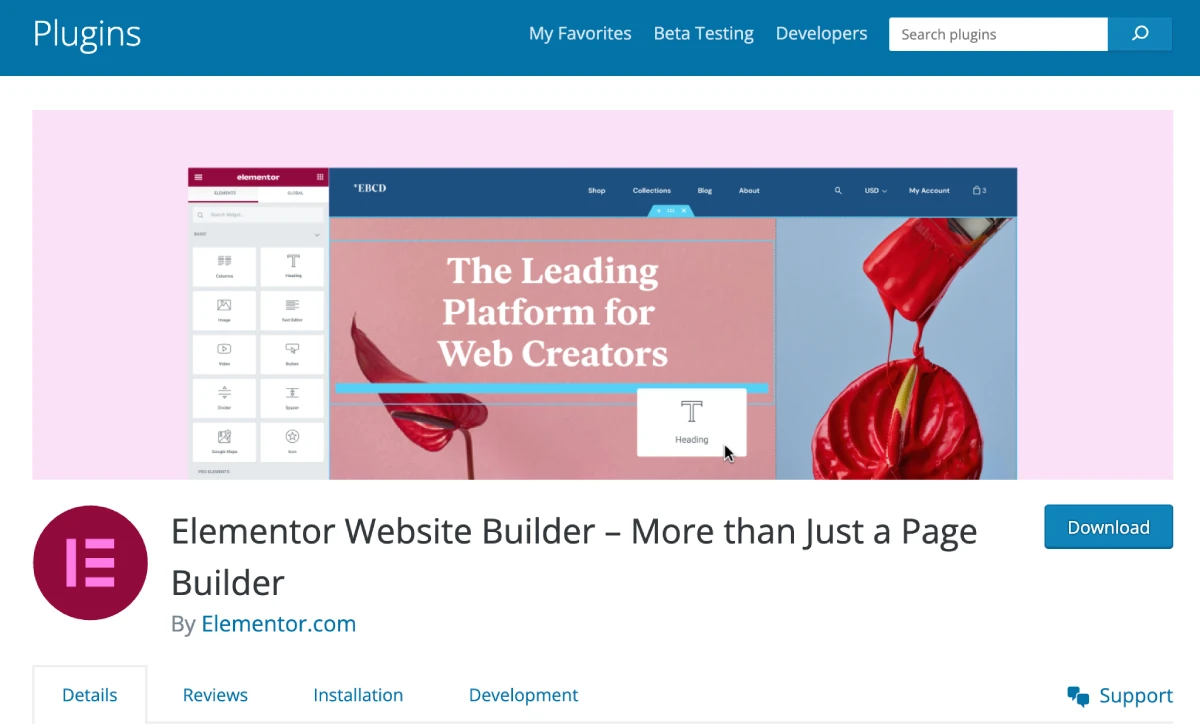
2)SEOPress
In the realm of SEO, SEOPress emerges as a versatile solution. Available in both free and premium versions, it aids in optimizing your site for search engines, ensuring your content reaches its intended audience effectively.
3)Divi Ai
Divi AI, a premium plugin, leverages AI in various facets, including content creation and image generation. It’s a multi-purpose tool that caters to both aesthetic and functional aspects of your website.
4)Rank Math
Rank Math, an SEO-focused plugin, employs AI to assist in crafting SEO-friendly content. It offers valuable insights like similar long-tail keywords, aiding in content optimization.
5) Uncanny Automator
Uncanny Automator uses AI to create powerful automation workflows for your WordPress site. With OpenAI integration, it supports various AI models, allowing seamless incorporation of AI-generated content.
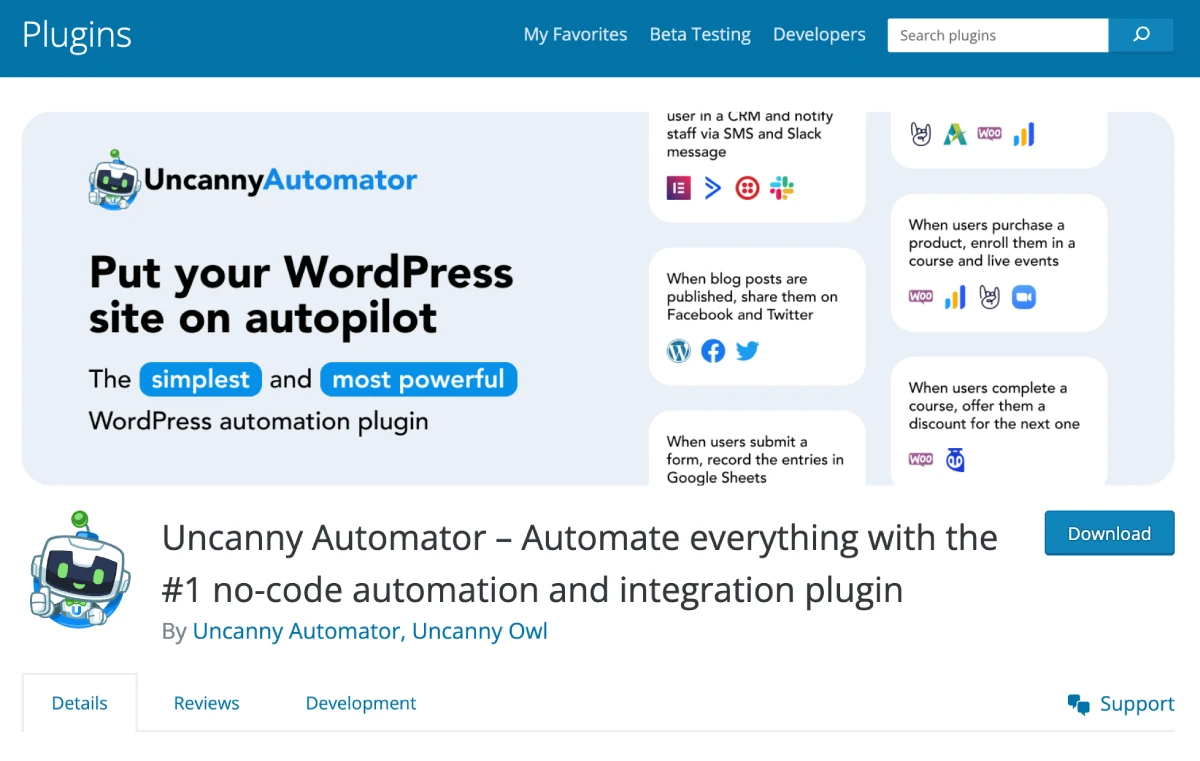
6) All in One SEO (AIOSEO)
AIOSEO leverages AI and machine learning to provide smarter SEO solutions, making it easier to optimize your site for better search rankings.
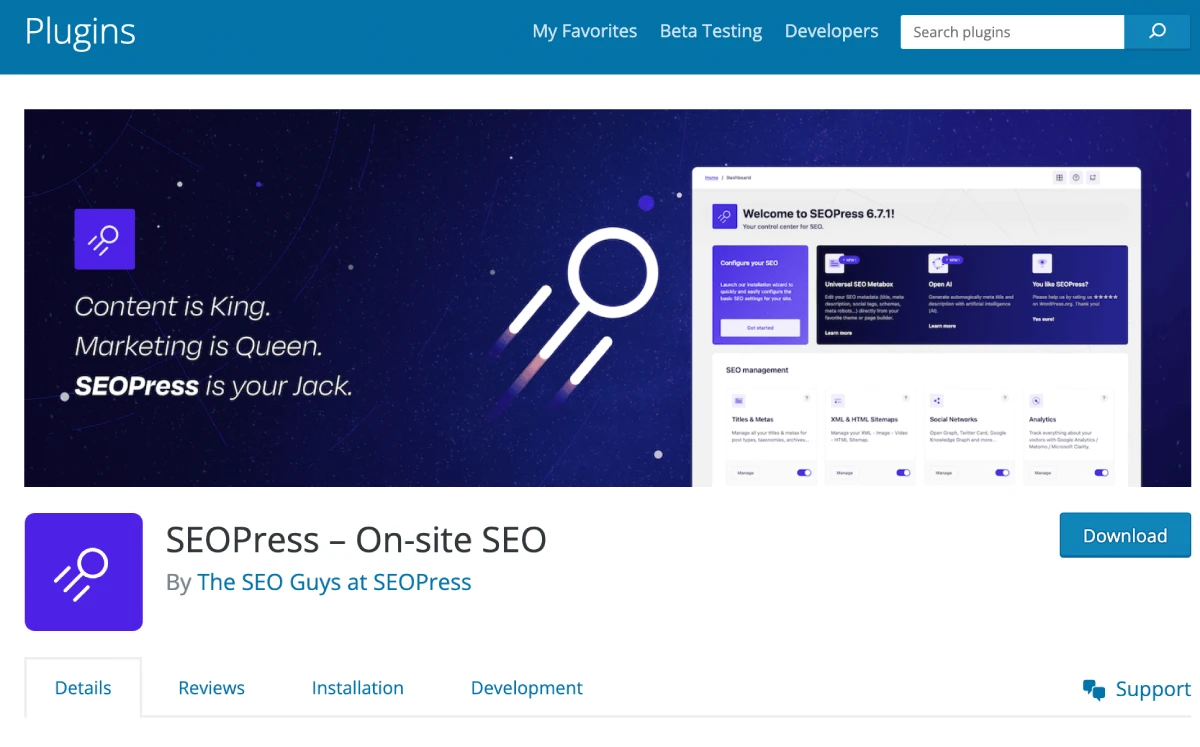
7) Hostinger AI Assistant
Hostinger AI Assistant, a free plugin, serves as an efficient AI content generator. It streamlines your content creation process, saving time and enhancing productivity.
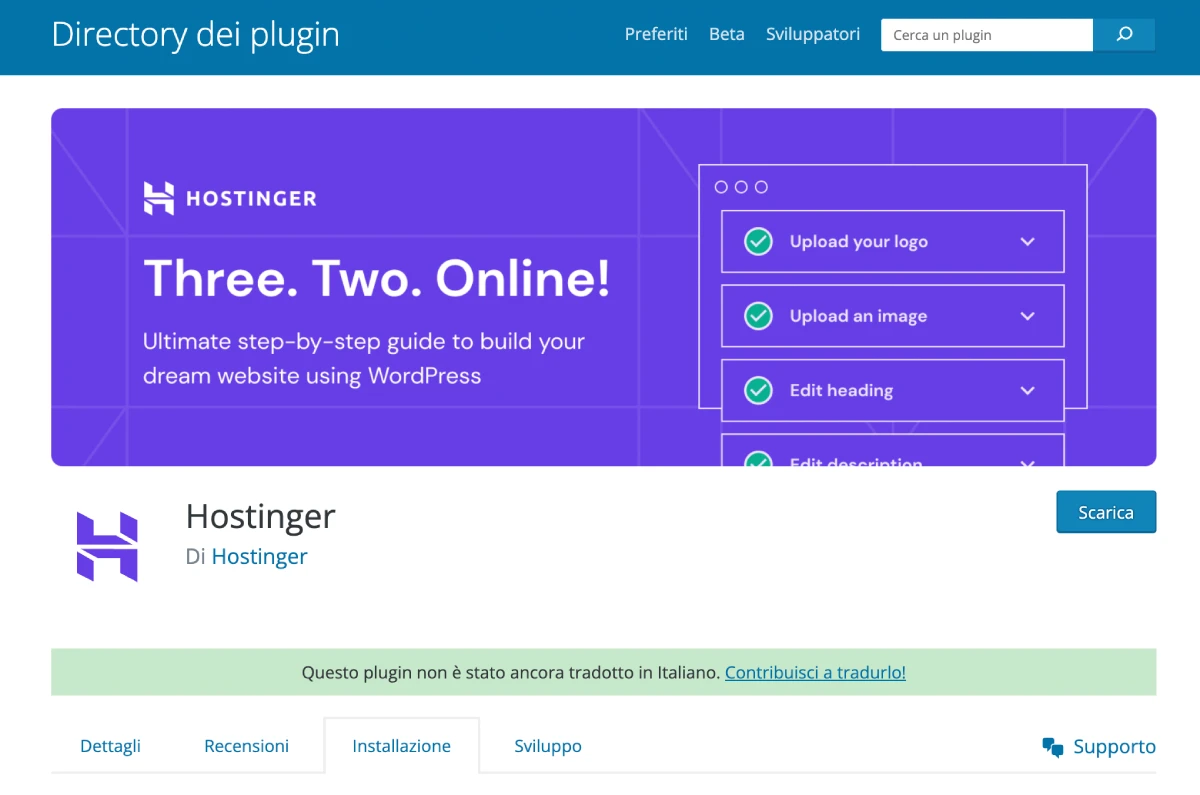
Comparative Analysis: AI Capabilities in Shopify and WordPress
Both Shopify and WordPress are well-regarded options for creating websites and online stores. Each offers its own assortment of AI capabilities to boost user experience, simplify tasks, and improve overall performance.
Unleashing the Power of AI with Shopify
For your convenience, Shopify includes AI tech right in its platform to support merchants in numerous ways. Let’s highlight a few key features:
- Shopify Magic: An array of AI-backed features are seamlessly incorporated into Shopify’s offerings and workflows. From creating product descriptions and email subject lines to crafting headers for your online store, Shopify Magic can do it all. Utilizing Large Language Models (LLMs), it comprehends and adapts to human language, ready to tackle tasks such as answering queries, translating text, summarizing information, and generating fresh content.
- Sidekick: A commerce assistant powered by AI, Sidekick is designed to offer individualized, relevant help for a variety of tasks. It enables entrepreneurs to answer queries in real-time, simplifying their operations.
- AI-Enabled Apps: The Shopify App Store is home to a range of AI-powered apps that can enhance workflows, elevate customer experience, and boost revenue. These apps can automate an array of tasks such as retouching photos, providing customer support through chatbots, and creating and distributing content.
Tapping into the AI Potential with WordPress
Being an open-source platform, WordPress offers AI capabilities primarily through plugins. Let’s look at some standout AI plugins:
- Uncanny Automator: This plugin opens up the possibility of creating powerful workflows to automate your WordPress site, thanks to its integration with OpenAI that supports ChatGPT.
- Varied AI Plugins: WordPress offers a plethora of AI plugins that can simplify tasks ranging from auto-generating content to optimizing SEO. Popular picks include WordLift, SEOPress, Divi AI, Akismet Spam Protection, AI Engine, and CodeWP.
- AI and Machine Learning: By utilizing AI and machine learning, WordPress can offer a superior and more intelligent user experience. This can benefit WordPress search, grammar and style checking, display related content, improve conversion rates, and boost eCommerce sales.
In summary, both Shopify and WordPress offer potent AI capabilities, albeit with distinct applications. Shopify’s AI strengths are more fully integrated into the platform, with a focus on e-commerce activities. WordPress, on the other hand, offers a multitude of AI plugins adaptable for a variety of purposes from content creation to SEO optimization. Your decision between the two will likely depend on your unique business needs and objectives.
Conclusion: The Impact of AI Integration on E-commerce Platforms
In the final analysis, the integration of Artificial Intelligence with e-commerce platforms such as Shopify and WordPress comes with distinct benefits and challenges. As the technology continues to evolve, it’s becoming a critical tool for online merchants who want to optimize their websites for increased customer engagement, superior performance, and ultimately, enhanced sales.
Having compared AI functionalities in both Shopify and WordPress, it’s safe to say that Shopify takes the lead in delivering a more robust and streamlined ecommerce experience:
-
- User friendly interface: Shopify boasts of an easy-to-navigate interface, even for those less technologically inclined. It offers a seamless integration of AI, enabling businesses to set up and manage their ecommerce stores with ease.
-
- Advanced Analytics: Shopify’s AI-powered analytics offers in-depth insights about website performance, customer behavior, and sales patterns, providing data-driven strategies for growth and success.
-
- Automated Marketing: From personalized recommendations to targeted email marketing, Shopify’s AI capabilities facilitate automating the cumbersome task of marketing, thus saving time and effort.
While WordPress also offers AI integration capabilities, its steep learning curve and the need for external plugins for enhanced AI functions make it lag behind Shopify.
Remember, the ultimate choice between Shopify and WordPress will depend on your specific business needs and technical knowhow. However, when it comes to an all-round, user-friendly ecommerce experience with robust AI integration, Shopify holds a decisive edge.
So, are you ready to harness the power of AI in your ecommerce venture? Don’t let the tech jargon intimidate you. With the right platform, you have every tool you need to succeed. Happy selling!

